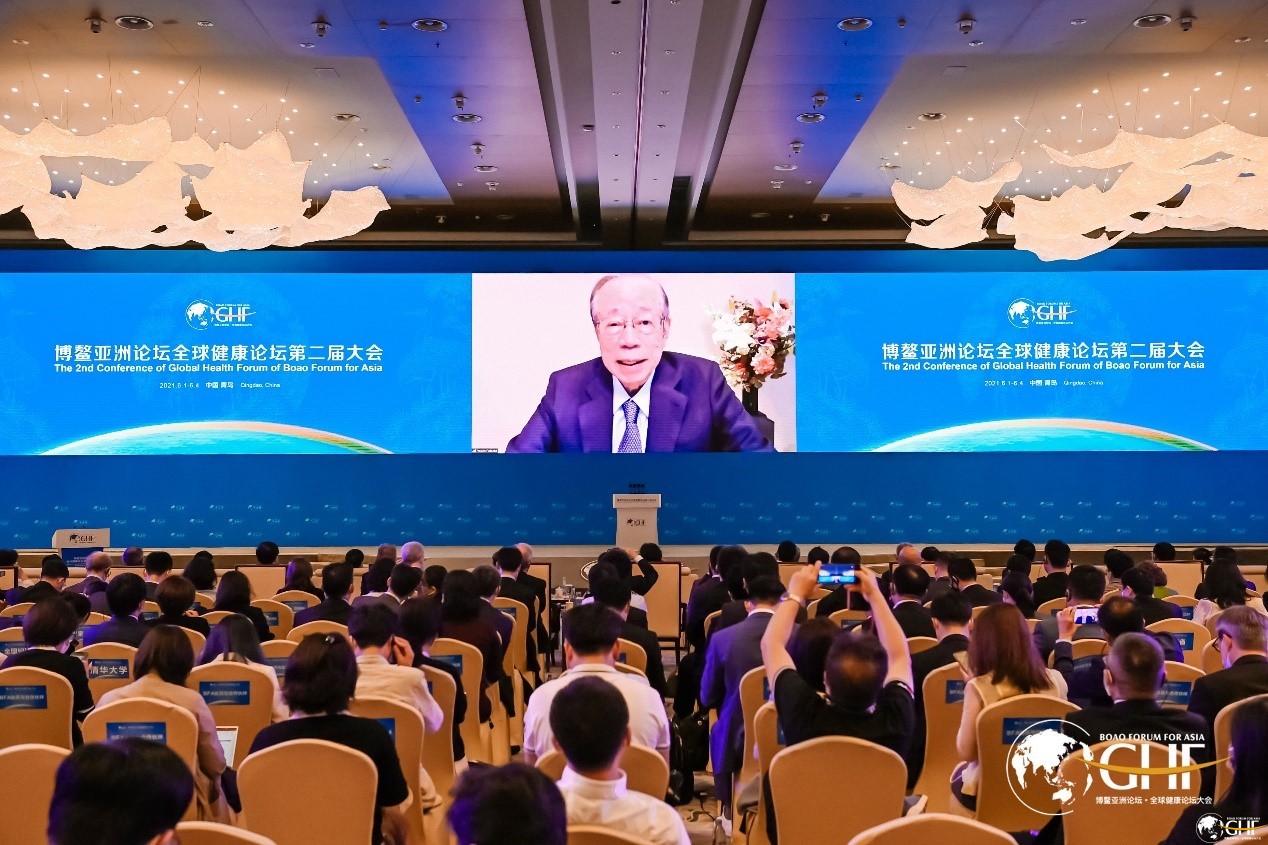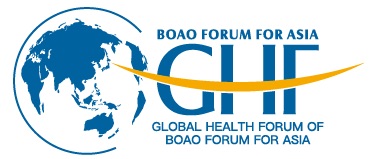
On June 2, Yasuo Fukuda, Chairman of the BFA Council of Advisors and former Prime Minister of Japan, delivered a keynote speech at the opening ceremony of the Second Global Health Forum of Boao Forum for Asia.
In his speech, Yasuo Fukuda introduced the situation of pandemic in Japan. He said, “Japan has 120 million population and has recorded 730,000 cases of infection, in which 14,000 cases of death. The number seems relatively low compared to other countries. It is because Japanese are used to wear masks in winter and they pay more attention to personal hygiene in daily life, including hand washing and gargling , these habits played a part in the pandemic.”
On the other hand, Japan has began vaccinating the public since April and yet kept a low inoculation rate. Full vaccination is expected to be completed at the end of this year. The reason is mainly due to Japan's strict certification standards for vaccines, which impacted the import and supply of vaccines.
Japan is currently experiencing the fourth rounds of resurgence. There are 42 local public entities in Japan, including cities like Tokyo and Osaka had both declared state of emergence, advocating self-disciplinary measures on public life and the operation of industries. It is a suggested move from the government, not an order. A state of emergency has been declared many times, and the pandemic has never been controlled, many people are tired of implementing the suggested policy.
The anti-pandemic measures varies with the countries. In China, the government brought the pandemic under control with rapid response and robust actions. China started to vaccinate its people very early. Therefore, China has successfully stabilized its economic and social life.
In the United States, there was a time when the infection was out of control. The total number of deaths reached 600,000, which was higher than the combined number of American deaths in WWI, WWII, and the Vietnam War. Recently, through the development of vaccines and the acceleration of vaccination, the number of infected people in the United States has decline rapidly.
On the other hand, mainly in developing countries, the pandemic has not yet been controlled, and neither the supply of vaccines nor the vaccination can be carried out smoothly. Today, with the development of globalization, the COVID-19 respects no borders, and the pandemic has become a common issue facing the entire international community. International cooperation and coordination are most needed at this moment. China has been committed to providing domestically manufactured vaccines to developing countries, which deserves to be appreciated.
Japan has been unable to control the pandemic, one of the reasons is that vaccination is relatively late. Another reason is that the Japanese people are very repulsive of government intervention. Even if it is to prevent the spread of the pandemic and for the welfare of the public, the Japanese people still believe that it is not a good thing for the state to use power to control the legitimate rights and interests of citizens and enterprises. In many countries, the government restricts citizens from going out and traveling, and implements lockdown and stay-at-home orders. Japan has not implemented such measures. Although the Japanese government requires citizens to reduce non-urgent and unnecessary outings and encourage citizens to work from home, these are government requirements, or guidance, and there are no specific penalties in case of violation. Furthermore, the Japanese government has temporarily closed the restaurants and entertainment places, shorten their opening time without offering alcohols, but in the end, it is up to the operator to judge whether to comply with it in his own conscience. In other words, in Japan, in the face of such a crisis of a global pandemic, the Japanese government does not have laws that impose restrictions on people's lives and corporate activities. Moreover, Japan has traditionally regarded "harmony as the most precious" and attaches great importance to cooperation and coordination. When the society is relatively stable and peaceful, and the people are safe, this philosophy can be regarded as a virtue and it is commendable. But it is not applicable in the outbreak of a pandemic.
If Japan still insists on such a virtue, it needs to rely on vaccination to fight the pandemic. In other words, vaccination is the best way to fight the pandemic. However, because Japan is not yet ready to develop a vaccine, if it causes economic stagnation and instability, then it is a huge responsibility and the government must bear it. In other words, the pandemic poses a very profound problem to the country, government, and citizens of Japan. We still need to discuss this issue and it will take time. However, many Japanese have realized that it is not enough to rely solely on self-discipline or spontaneous self-discipline.
The way countries respond to the pandemic has not only had a serious impact on the lives of the people, but also on the overall development of the economy. China has contained the pandemic very early and its economy is growing. The US economy is also expected to improve. The economic conditions of many developed countries are deteriorating and there is no sign of recovery. Japan’s economy recorded negative growth last year, and the growth rate is also very low this year.



 Reports
Reports
 Partner application
Partner application Download
Download Hot News
Hot News









